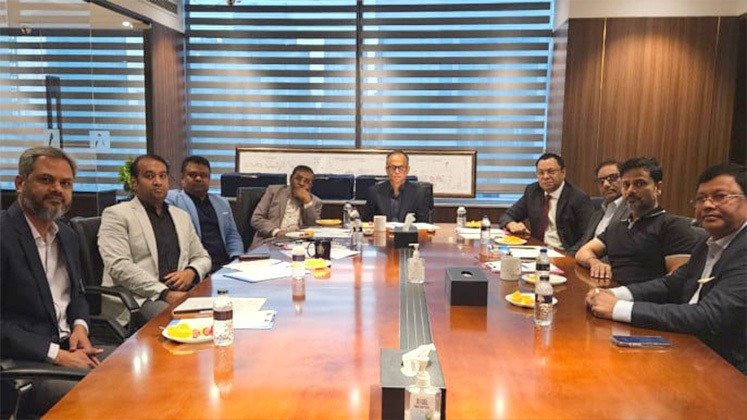
Three major trade bodies have issued a stark warning about the future of Bangladesh’s spinning industry, urging the government to deliver immediate policy support to prevent what they describe as a potential sector-wide collapse. The appeal comes amid escalating financial and operational pressures on spinning mills, which industry leaders say have reached a critical point.
Speaking at a conference held on 18th November in Gulshan, representatives cautioned that the spinning sector could “collapse at any time” without swift action. They warned that the shutdown of spinning mills would jeopardise the livelihoods of millions of workers, expose banks and financial institutions to severe risks, and leave Bangladesh’s flagship textile and apparel industries dependent on foreign suppliers — a scenario they characterised as a serious threat to national competitiveness.
The meeting brought together top industry figures, including Mahmud Hasan Khan Babu, President of the Bangladesh Garment Manufacturers and Exporters Association (BGMEA); Showkat Aziz Russell, President of the Bangladesh Textile Mills Association (BTMA); and Mohammad Hatem, President of the Bangladesh Knitwear Manufacturers and Exporters Association (BKMEA), alongside senior sector executives. Participants discussed the mounting challenges facing the industry and outlined urgent measures to protect it.
A BTMA representative said that incentives for local producers had been reduced while neighbouring India continued to offer substantial support to bolster its own textile sector. The representative stressed the need for “immediate special assistance” from the government, warning that Bangladesh’s dominant export sectors would otherwise become increasingly reliant on imported raw materials.
The gathering also raised concerns over the recently issued Bangladesh Labour (Amendment) Ordinance, 2025. Industry leaders argued that several major provisions in the ordinance were absent from the unanimous decisions adopted at the Tripartite Consultative Council (TCC). Mohammad Hatem said the government had amended the labour law “at its own discretion”, calling it “a blueprint for the destruction of the industry”. The leaders urged authorities to revise the ordinance promptly in line with TCC recommendations.






